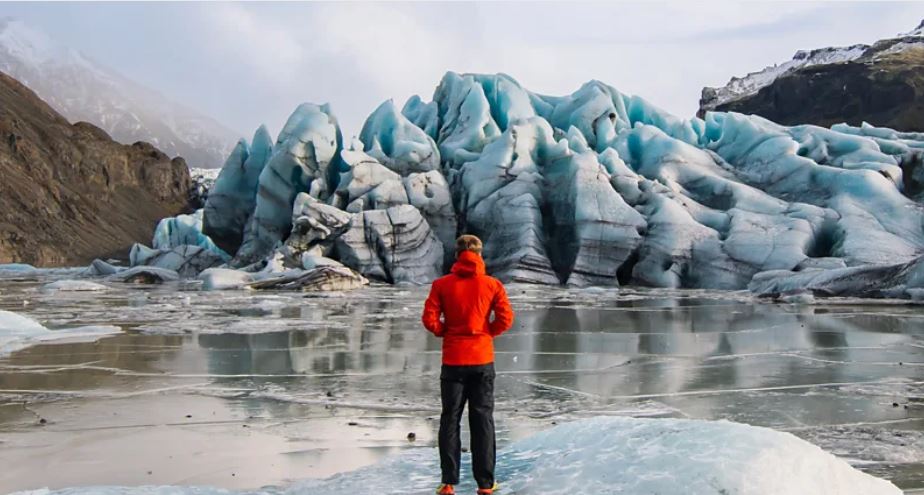
In a year marked by conflict, five nations continue to rank among the world's most peaceful. Residents reveal how policies and culture shape daily life and create a sense of calm.
In 2025, peace can feel like a rare commodity. Global wars are escalating, border security is tightening, and trade tensions continue to mount. According to the 2025 Global Peace Index (GPI), the number of state-based conflicts has reached its highest level since World War Two, with three more breaking out this year alone. Many countries are responding with increased militarisation.
Yet despite those grim statistics, some nations continue to prioritise peace. The GPI, produced by the Institute for Economics & Peace, tracks 23 indicators, from external conflicts and military expenditure to safety and security measures like terrorism and homicide. The countries ranked at the top of the index have been remarkably consistent for nearly two decades, showing the stability that peaceful policies can bring over the long haul.
We spoke to residents in some of the world's most peaceful counties to learn about how those policies shape day-to-day life – and what gives them a unique sense of security and calm.
Iceland
Ranked number one since 2008, Iceland remains the world's most peaceful nation, leading across all three domains: safety and security, ongoing conflict and militarisation. It even recorded a 2% improvement this year, widening the gap from the second-place country on the list.
For locals, that sense of safety is baked into everyday life. "While harsh weather conditions, especially in winter, may not always create a sense of safety, community does," said Inga Rós Antoníusdóttir, who was born in Iceland and is general manager for Intrepid Travel North Europe. "You can walk alone at night mostly without worry; you will see babies sleeping peacefully in prams outside cafes and shops while their parents enjoy a meal or [are] running errands; and the local police don't carry guns."
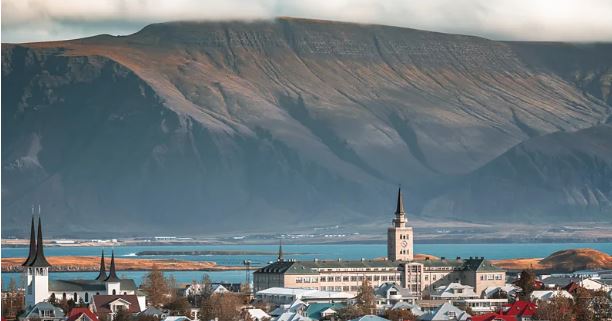
Inga credits the country's world-leading gender equality policies with allowing women to feel secure. "Equal opportunities and robust social systems create a fairer, safer society for everyone," she said.
She recommends visitors experience this inner calm by joining locals in everyday rituals. "Go for a swim in a geothermal pool and chat with strangers in the hot tub; hike a mountain, whether it's an afternoon climbing Mt Esja right outside of Reykjavik or a multi-day hike in the highlands," she said. "The real Iceland is found in its thriving music and art scene, in nature away from the main sites and in all kinds of weather."
Ireland
Though marked by conflict throughout the late 20th Century, today's Ireland continues to put peace at the forefront. It received especially high scores for reducing its militarisation year-over-year and ranked as one of the countries with the fewest ongoing domestic and international conflicts. It also placed within the top 10 for societal safety and security, with low perceptions of crime and violence.
That feeling extends throughout the country for residents. "A deep sense of community and friendliness makes you feel welcome and at ease, whether you're in a small town or a big city," said Jack Fitzsimons, Kildare resident and director of experiences at Kilkea Castle. He finds that strong social support systems and a focus on community welfare also reduces inequality and tension. "People look out for one another here," he added. "It's the kind of place where you can ask a stranger for help and they'll go out of their way for you."
On the global stage, the country maintains a military neutrality (which prevents it from being an official member of Nato, one of only four European countries without membership), and a preference for using diplomacy to solve conflict. At home, the country prioritises preservation of its landscapes and cultural sites, and ensures travellers always feel welcome. "It still amazes me how surprised guests are about how friendly Irish people are. For us, it is just part of our fabric, as we have an innate sense of hospitality to overseas visitors," said Fitzsimons.
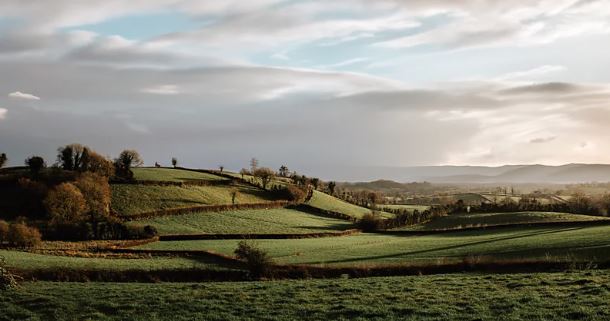
Ireland's relaxed nature also leads to a sense of peace. "You're never far from a castle, a quiet forest walk or a traditional music session in a cosy pub," said Fitzsimons. "Life moves at a more relaxed pace here, and people still value conversation and storytelling. That human connection really stands out."
New Zealand
This year New Zealand moved up two spots to number three, thanks to improvements in the safety and security domain as well as fewer demonstrations and terrorism-related impacts.
As an island nation in the Pacific, New Zealand's geography gives it natural protection from external conflict, but its internal policies also afford residents a sense of peace. "New Zealand's gun laws are among the strictest in the world, which absolutely contributes to the sense of safety," said lifelong Kiwi Mischa Mannix-Opie, director of client experience at relocation firm Greener Pastures. She notes that it's a place where kids walk to school, people leave their doors unlocked and motorists will stop to help if a vehicle is broken down on the side of the road. "There's a general trust in others and in the systems around you, which creates a real sense of community in daily life."
Beyond the strong social safety net and access to universal healthcare, New Zealanders value their connection to nature, whether it's walking on the beach, hiking in the bush or having a glass of wine under the stars, says Mannix-Opie. The sense of community also means plenty of festivals and events for all ages, with an emphasis on family-friendly environments. Though many visitors come for the scenery, it's often the feeling of safety and belonging in the community that leaves the lasting impression.
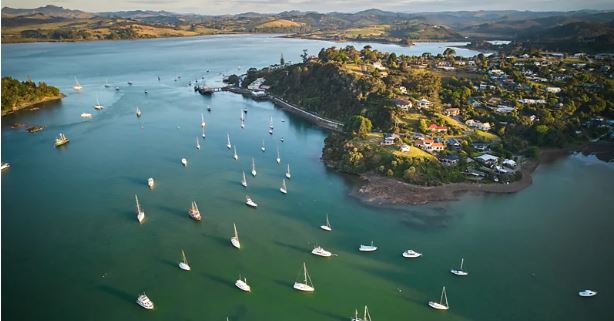
"Beyond the postcard landscapes, New Zealand has real depth. The people are genuine, the Māori culture is rich and ever-present and the slower rhythm of life can really shift your perspective," said Mannix-Opie. "One client told me that although New Zealand is beautiful, it's our people that are our superpower."
Austria
Austria slipped one place this year to fourth but still ranked high across all domains. Like Ireland, Austria adopts a constitutionally mandated policy of neutrality, preventing it from joining military alliances like Nato. This enables the country to focus its attention and resources internally.
"Austria's decades-long policy of neutrality means the nation invests in its people instead of conflicts," said Armin Pfurtscheller, owner of SPA-Hotel Jagdhof. "A strong social safety net, world-class healthcare and excellent education foster stability and trust." He lives in Neustift in the Stubai Valley, where he says people wander along the Ruetz River at midnight, homes are left unlocked and bicycles sit unchained outside cafes. "Safe isn't just a statistic, it's the way life feels."
Pfurtscheller also notices this sense of ease among guests who come to stay in the valley. "After a couple of days, their shoulders drop, the stress melts away, and they sleep like they did as children," he said. "They start to notice the sound of the river, the way the light changes on the mountains and the simple joy of breathing deeply. That is the greatest sense of safety this place offers: the certainty that here, you are free to simply be."
Singapore
Maintaining its position at number six, the city-state of Singapore is the only Asian country in the top 10 (Japan and Malaysia come in at 12 and 13, respectively). It ranks especially high for safety and security, even while maintaining one of the world's highest levels of military expenditure per capita, outpaced only by North Korea and Qatar.
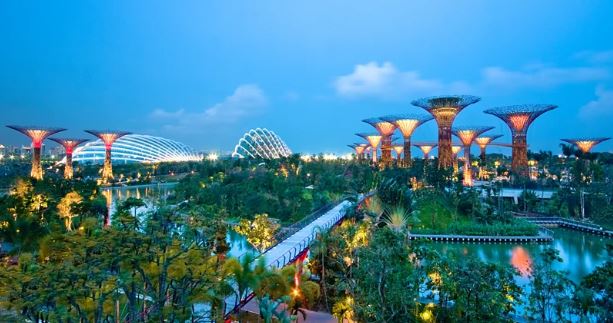
The lack of ongoing conflict and internal security lead to a strong sense of safety for most residents. "I walk late at night and do not feel afraid. Walking home is not overwhelming or anxiety-provoking like it is in most large urban cities," said resident Xinrun Han. "There is 100% comfort and mutual trust in the system, which makes an environment that is calm, caring and peaceful."
While Singapore’s conservative stance on LGBT+ protections limits some freedoms, with same-sex marriage still prohibited, social progress is visible through events like the growing Pink Dot pride festival. Many reported feeling safer at the rally this year than in past decades as younger Singaporeans push for more widespread acceptance.
Han recommends visitors embrace the freedoms that come with security, like strolling along the river at 02:00, grabbing a bite from a late-night street food vendor or visiting the park after dark. "It all feels very free, whether you're a resident or just visiting."















